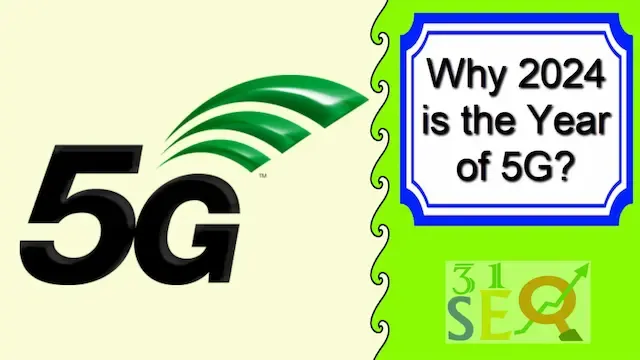 | |
| Why 2024 is the Year of 5G? |
Why 2024 is the Year of 5G?
The MWC 2024 has just concluded, and 5G is finally beginning to deliver on its transformative promises. By capitalizing on advancements such as cost reduction and integration with Wi-Fi, the technology is reshaping digital infrastructure and security in the telecommunications sector.For the past two or three years, 5G has generated more hype than actual change. However, over the past year, the situation has started to evolve. 5G use cases and deployments are beginning to materialize, leveraging the need for low latency and high reliability at the edge.
The challenge remains to find a way to encourage all companies to abandon their 4G solutions and invest in 5G. But just as AI made its mark in 2023, we can expect 5G to dominate in 2024.
At the Mobile World Congress, 5G networks were at the heart of discussions. I am eager to see how this new mindset around the viability of 5G will inspire more innovative use cases, beyond just a private network.
The Evolution of 5G:
More than just a replacement solution, 5G should be seen as an innovation tool. In this regard, we should witness two major developments this year that will mark a turning point for 5G.The first will be the reduction in the cost associated with adopting 5G, increasing the number of devices integrating 5G services.
Until now, one of the main challenges to this advancement has been the absence of 5G radios in most end-user devices, including MacBooks and ThinkPads. By removing the financial constraint, all obstacles to innovation will be eliminated.
Secondly, 5G will increasingly be adapted to handle Wi-Fi services. Telecom operators thus have the opportunity to consolidate their existing infrastructure to create new service layers, thereby ending the debate on replacing Wi-Fi with 5G.
At a time when many companies are preparing for a renewal of the lifecycle of IoT devices, telcos could take this opportunity to equip themselves with modern, multi-hosting devices that integrate 5G and Wi-Fi.
The Security Aspect of 5G:
All these promises of innovation are fantastic, but let’s keep an eye on the security of 5G. For a long time, it was assumed that network services were secure, but the reality is quite different. The need for connectivity and devices extending beyond the limits of our home networks is continually expanding the surface for potential cyberattacks.Most users prefer to watch YouTube, social media, or streaming programs rather than worry about their security. Nevertheless, they expect telecom operators to protect them from potential risks. Regardless of the radio wave, a Zero Trust framework offers telecom operators guidance to ensure a comprehensive approach to network security and maintain a general level of protection.
